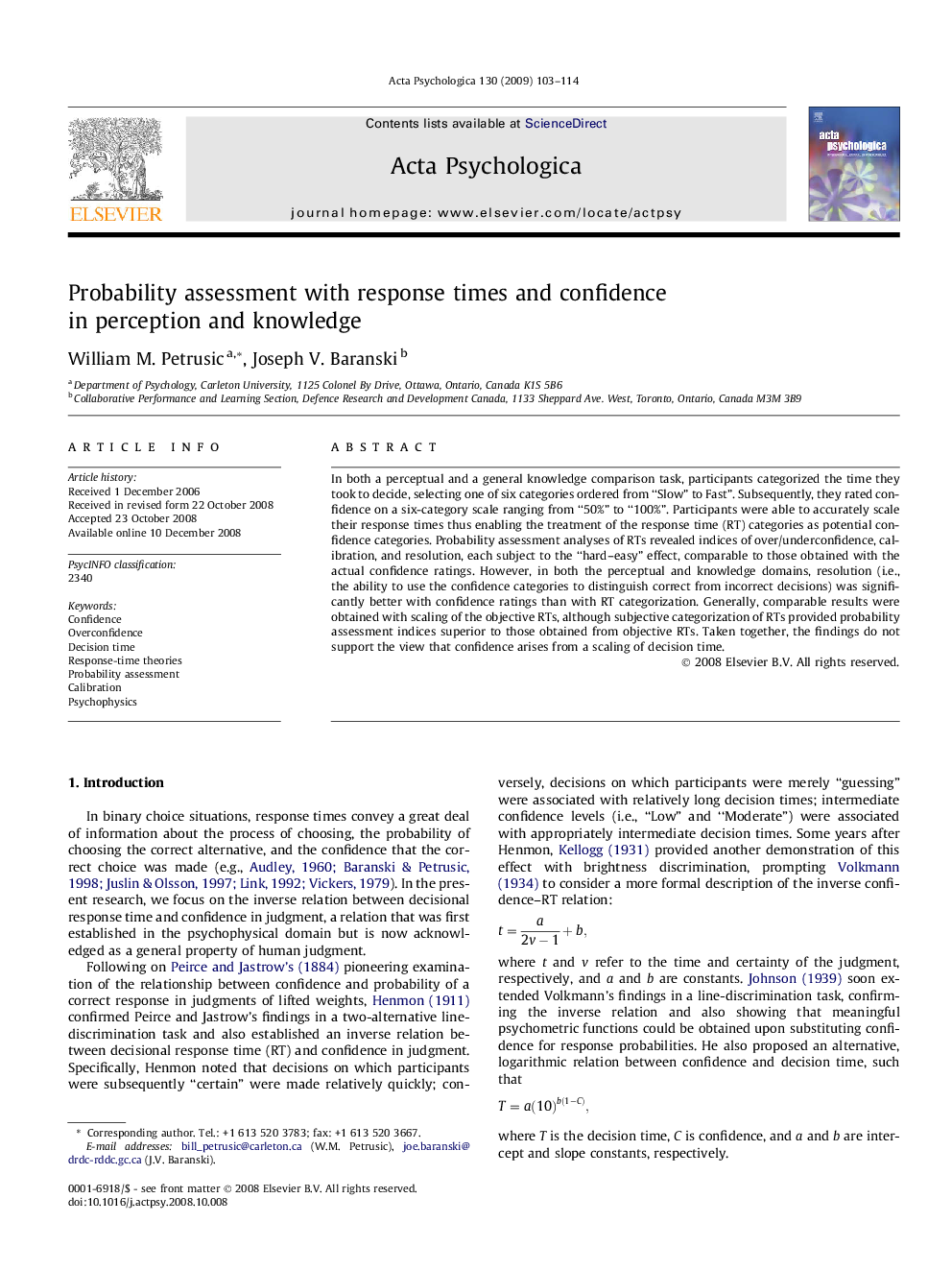| Article ID | Journal | Published Year | Pages | File Type |
|---|---|---|---|---|
| 920351 | Acta Psychologica | 2009 | 12 Pages |
In both a perceptual and a general knowledge comparison task, participants categorized the time they took to decide, selecting one of six categories ordered from “Slow” to Fast”. Subsequently, they rated confidence on a six-category scale ranging from “50%” to “100%”. Participants were able to accurately scale their response times thus enabling the treatment of the response time (RT) categories as potential confidence categories. Probability assessment analyses of RTs revealed indices of over/underconfidence, calibration, and resolution, each subject to the “hard–easy” effect, comparable to those obtained with the actual confidence ratings. However, in both the perceptual and knowledge domains, resolution (i.e., the ability to use the confidence categories to distinguish correct from incorrect decisions) was significantly better with confidence ratings than with RT categorization. Generally, comparable results were obtained with scaling of the objective RTs, although subjective categorization of RTs provided probability assessment indices superior to those obtained from objective RTs. Taken together, the findings do not support the view that confidence arises from a scaling of decision time.
